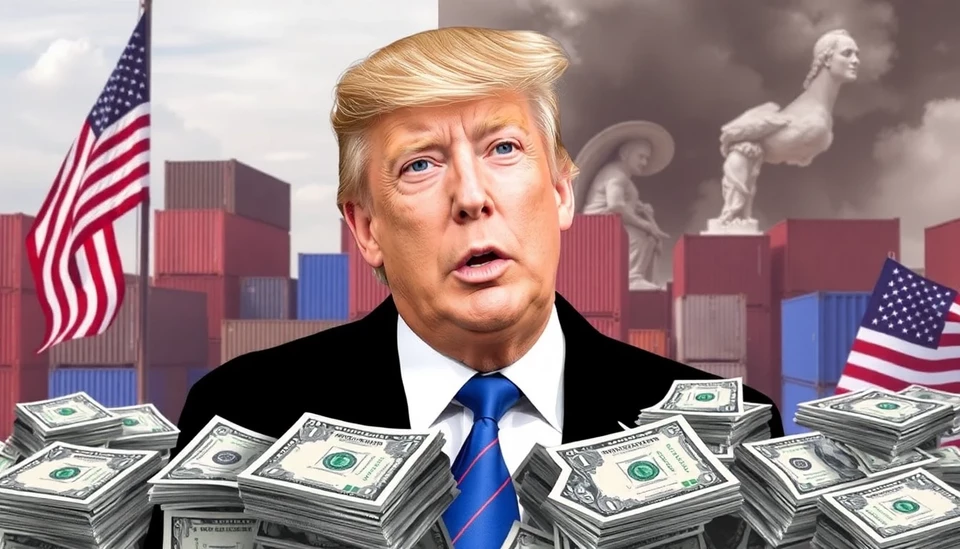
As tensions escalate in global trade, former President Donald Trump's ongoing trade war with multiple countries is raising significant concerns about the future of the US dollar and its status as a safe-haven currency. Financial analysts warn that the trade policies instituted under Trump's administration could have far-reaching implications for international markets and the attractiveness of US government bonds.
Trump's aggressive tariff policies aimed at China, Europe, and other trading partners have not only strained diplomatic relationships but have also led to increased volatility in international trading conditions. The unpredictability of these tensions is causing investors to rethink their positions, with many looking toward alternative currencies and assets that may present a lower risk profile than US investments.
While the US dollar has long been synonymous with stability, the effects of trade disputes are prompting a critical reevaluation. Market experts suggest that a prolonged trade conflict could erode confidence in the dollar, leading investors to diversify their portfolios toward currencies like the euro and the yen, which may offer more stable prospects in the face of uncertainty.
Moreover, the implications extend well beyond currency stability. The attractiveness of US bonds, which have historically served as a reliable refuge during times of financial turmoil, is under scrutiny as rising interest rates and inflation pressures reshape investor preferences. The Federal Reserve's monetary policy response to inflationary pressures and the ongoing economic fallout from trade tensions has further compounded uncertainties surrounding bond investments.
Economists warn that a sustained decline in the dollar's value could also impact the US’s ability to borrow, as foreign investors may demand higher yields to compensate for the perceived risks associated with US debt. This shift could dramatically increase the cost of borrowing for the government, impacting fiscal policy and potential public spending.
Furthermore, the escalating trade war poses a significant challenge to US competitiveness in the global marketplace. Export-dependent industries may suffer under high tariffs, potentially leading to job losses and an economically fragile environment that further jeopardizes the attractiveness of the dollar and government bonds as safe-haven options.
This ongoing situation highlights the need for strategic reassessment within the financial sector, urging investors to remain vigilant regarding the effects of geopolitical tensions and trade policies on currency values and investment decisions. The urgent call for a reevaluation reflects a broader concern about the long-term implications of national policies that ultimately shape the landscape of global finance.
In conclusion, the interplay between Trump's trade war and its impact on the US dollar and government bonds presents both challenges and opportunities for investors. Understanding these dynamics is essential for navigating an increasingly complex economic environment.
As discussions regarding the trade war continue, it is clear that the financial world is closely monitoring the evolving situation, making timely insights critical for those looking to protect their investments amidst potential upheaval.
#Trump #TradeWar #USDollar #Bonds #FinancialMarket #SafeHaven #Investing #Economy #Tariffs
Author: Rachel Greene




